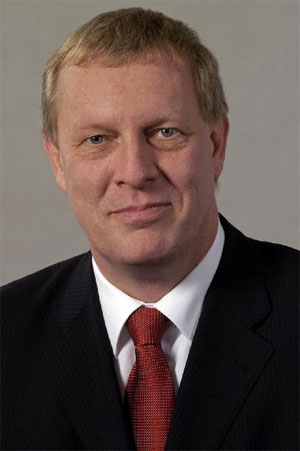Farin Urlaub Racing Team, Samstag, 16. Mai, 20.00 Uhr, Ruhr-Congress, Bochum
Ruhrpilot

Das Navigationssystem für das Ruhrgebiet
Dieter Gorny Foto: Ruhr2010
Online: Kulturhauptstadtdirektor Gorny fordert Internetverbot…Heise
Entwicklung: Duisburger Freiheit…Der Westen
Prost: Thoben will Wirtssteuer senken…Ruhr Nachrichten
Landtagswahl: NRW Versuchslabor für Rot-Rot-Grün?…Welt
Galore: "Der Geanke wird im Netz überleben…Meedia
Pro NRW: Manchmal kommen sie wieder…Hometown Glory
Europawahl: Der geschönte Kandidat…Der Westen
Opel: Treuhand als Übergang…Welt
Finanznot: Städte leiden am meisten…Der Westen
Opel II: Bund gibt alle Trümpfe aus der Hand…Spiegel
Opel III: Treuhandmodell wackelt…FAZ
Städtetag: Rückblick eines Besuchers…Dirk Schmidt
Natur: Es ist wieder Zeckenzeit…Zoom
Netzsperren: Langsam wird es peinlich…2.0
Old Daddy: Your Disco don´t need you…Recklinghäuser Zeitung
Römermuseum: Varus-Ausstellung beginnt…Recklinghäuser Zeitung
Wer kommt nach Klink?

2011 endet für das Ruhrgebiet eine peinliche Zeit: Dann wird das Ruhrparlament einen Nachfolger für Heinz Dieter Klink bestimmen.
Jörg Stüdemann
Alles geht einmal zu Ende – ein Satz, der schon vielen Menschen Trost gespendet hat, vor allem wenn sie aus dem Ruhrgebiet stammen und Heinz Dieter Klink, den Regionaldirektor der RVR sehen: Ja, auch seine Zeit wird einmal vorbei sein. Das dauert zwar noch fast zwei Jahre, aber immerhin: Das Ende ist so ansehbar wie der erste Silberstreif am Horizont nach einer langen, dunklen und kalten Polarnacht. Eines ist schon heute gewiss: Egal wer auf ihn folgt, es kann nicht schlimmer werden. Sollten SPD, Linkspartei und Grüne auch nach der Kommunalwahl im Ruhrparlament die Mehrheit haben, werden sie bei der Personalwahl sicher mehr Verantwortung zeigen als beim letzten Mal. Klink gewählt zu haben ist nicht wenigen von ihnen bis heute peinlich.
Man kann es verstehen. Ein Name, der im Gespräch mt Sozialdemokraten immer wieder fällt, wenn es um die Klink-Nachfolge geht, ist Jörg Stüdemann. Stüdemann ist Kulturdezernent in Dortmund und unterlag Ulrich Sierau im SPD internen Wettstreit um den Posten des Dortmunder OB-Kandidaten, hätte den Job jedoch auch ausfüllen können. Nicht wenige Genossen im Ruhrgebiet schielten während des Auswahlprozesses etwas neidisch nach Dortmund: Sierau und Stüdemann waren Beweise dafür, wie gut die Dortmunder SPD personell aufgestellt ist. In anderen Städten ist in dieser Frage eher Schmalhans Küchenmeister. Stüdemann hat Wurzeln im Ruhrgebiet: Vor seiner Zeit in Dortmund war er Mitarbeiter der Zeche Carl in Essen. Selbst aus der Union hört man Stimmen, die sich für ihn aussprechen.
Denn In der CDU hat die Diskussion um einen möglichen Kandidaten für das Amt des Klink-Nachfolgers noch nicht begonnen. Theoretisch wäre im Ruhrparlament eine Koalition aus CDU, Grünen und FDP möglich – inhaltlich liegt man nicht weit auseinander. Eine Schwierigkeit der Union: Ihre Personaldecke ist deutlich geringer als die der SPD. Einen eigenen Kandidaten wird die Union, wenn überhaupt, erst nach der Kommunalwahl bestimmen.
Angelika Express
Angelika Express, Freitag, 15. Mai, Cafe Nova, Essen
Ruhrpilot

Das Navigationssystem für das Ruhrgebiet
Medien: Aus für Galore…Meedia
Wachstum: Ruhrgebiet schrumpft…Ruhr Nachrichten
Preis: Grimme Online Award…Coffee & TV
Städtetag: Neue Städte braucht das Land…Frankfurter Rundschau
Opel: Keine Verstaatlichung…Frankfurter Rundschau
Schumann: Pin up für Genossen…Stern
Nahverkehr: Duisburg, Essen und Mülheim kooperieren…Der Westen
Autobahn: Mythos A40…Süddeutsche
Glaube: Atheisten kommen mit dem eigenen Bus…Der Westen
Netzssperre: SPD setzt öffentliche Anhörung durch…Spreeblick
Unis: Faruk Sen gründet Hochschule…FAZ
Schulministerin: Theater ohne Publikum…Zoom
Geld: Der Neid und sein edlerer Bruder…Gelsenkirchen Blog
Duisburg: Neue Pläne für den Landschaftspark…Der Westen
Gesundheitscampus: Dortmund gratuliert….Ruhr Nachrichten
Nazis: Flugblätter in Haltern…Halterner Zeitung
Kultur: Lesung im Zirkuszelt…Hometwon Glory
Ein paar Gedanken zum Gesundheitscampus

Bochum bekommt eine FH für nichtärztliche Medizinberufe und einen Gesundheitscampus, auf dem das Land mehrere zentrale Institutionen ansiedeln wird.
Sicher, die Freude von Bochum, den Zuschlag für den Gesundheitscampus erhalten zu haben ist groß – und die Enttäuschung in Castrop ebenfalls, nicht zum Zuge gekommen zu sein. 500 Arbeitsplätze und eine in Deutschland einzigartige Hochschule, zudem die Zusammenlegung von Forschungskapazitäten aus anderen Landesteilen – das ist schon etwas.
Es ist vor allem eine Änderung der Landespolitik. Gesundheitsminister Karl-Josef Laumann (Fioto) wird das Landesinstitut für Gesundheit und Arbeit (LIGA), Bielefeld, das Zentrum für Telematik im Gesundheitswesen, Krefeld, und das Krebsregister aus Münster ins Ruhrgebiet holen. Bislang haben alle Landesregierungen kaum zentrale Institutionen im Revier angesiedelt. Selbst das Landesarbeitsamt ist in Münster und nicht im Ruhrgebiet. Da hat sich etwas geändert und ich finde es gut. Wir haben im Ruhrgebiet ein großes Defizit an solchen Institutionen und das ist ein Teil der Schwäche dieser Region. Nun sollten wir selbstbewußt weitere Schritte in diese Richtung verlangen.
Ruhrpilot

Das Navigationssystem für das Ruhrgebiet
Clubsterben: Dortmunder Politik hat versagt…Ruhr Nachrichten
Städtetag: Städte setzen auf Konjunkturpaket…Der Westen
Gesundheitscampus: NRW bald führende Medizinregion…Kölnische Rundschau
Armut: Revier-OBs stöhnen unter Schuldenlast…Der Westen
Opel: US-Investor in Sicht?…Stern
Europawahl: Garant der Freiheit…Patje
Landtagswahl: Hohn für rot-rot-grün…RP Online
Ruhr 2010: Unterstützer für Schachtzeichen gesucht…Hellweger Anzeiger
Opel II: Zafira kommt nach Bochum…Stern
Natur: Aus Surm nichts gelernt…Zoom
Lokalradios: Chefredakteure verlangen Reform…Süddeutsche
Twitter: Strampeln in Echtzeit…2.0
Bochum bekommt Gesundheitscampus
Es war ein Gerücht, aber nun hat auch die WAZ die Meldung: Bochum bekommt demnach den Zuschlag für den Gesundheitscampus. Neben der Ruhr Uni werden eine neue FH und verschiedene Forschungseinrichtungen entstehen. Das Investitionsvolumen wird bei 75 Millionen Euro liegen. 500 neue Arbeitsplätze sollen nach Bochum kommen. Eine Expertenkommission hat sich gestern auf drei Standorte geeinigt – einer davon war der Favorit: Bochum.
Ruhrpilot

Das Navigationssystem für das Ruhrgebiet
Darwinjahr: Streitfall Evolution…Bo Alternativ
Duisburg: Israelflaggen bleiben künftig…Jerusalem Post
Entscheidung: Wohin mit Gesundheitscampus?…Bild
Städtetag: Die Speisung der 1500 …Der Westen
Opel: Manager verkaufen GM Aktien…Spiegel
ThyysenKrupp: Autokorso gegen Stellenabbau…Der Westen
WestLB: Standorte vor der Schließung…Ruhr Nachrichten
Dortmund: Vibrationsalarm für die Kunst…Ruhr Nachrichten
Geld: Manager der öffentlichen Betriebe schweigen…Der Westen
TV: 3Min – Vorbote der Revolution?…2.0
TVII: Aus Premiere wird Sky…Pottblog
„Governments of the Industrial World, you weary giants of flesh and steel“

1996 erklärte John Perry Barlow die Unabhängigkeit des Cyberspace. Der Anlass für diese Erklärung voller Poesie und Pathos war eine ähnliche Diskussion, wie wir sie im Moment in Deutschland wegen der Netzsperren führen.
John Perry Barlow Foto: eff
John Perry Barlow war früher einmal Texter von Greatfull Dead, gilt libertärer Vordenker des Computerzeitalters, unterstützte mal die Republikaner und mal die Demokraten und hat zahlreiche Unternehmen beraten und ist einer der Gründer der Electronic Frontier Foundation. Ein Lebenslauf wie der von Barlow wäre in seinem Facettenreichtum in Deutschland undenkbar.
Mitte der 90er Jahre wurde Barlow auch in Deutschland bekannt. Damals beschloss die Clinton-Regierung den Telecommunications Act der Regierung Clinton, zu dem auch der Communication Deceny Act gehörte. Der wollte vorgeblich den Zugriff auf pornographische Inhalte regulieren und Provider bestrafen, die solche und andere strittige Inhalte zugänglich machen. Das Gesetzt wurde nach einer langen Debatte komplett umgewandelt und schützt heute User und Provider vor willkürlicher staatlicher Verfolgung.
Im Rahmen dieser Diskussion erklärte John Perry Barlow in Davos die Unabhängikeit des Cyberspace. Perrs sah im Internet einen neuen Kontinent, der von Menschen bewohnt wird, die sich ihre eigenen Regeln geben und nicht mehr von "Laien regiert" werden wollen.
A Declaration of the Independence of Cyberspace
by John Perry Barlow
Governments of the Industrial World, you weary giants of flesh and steel, I come from Cyberspace, the new home of Mind. On behalf of the future, I ask you of the past to leave us alone. You are not welcome among us. You have no sovereignty where we gather.
We have no elected government, nor are we likely to have one, so I address you with no greater authority than that with which liberty itself always speaks. I declare the global social space we are building to be naturally independent of the tyrannies you seek to impose on us. You have no moral right to rule us nor do you possess any methods of enforcement we have true reason to fear.
Governments derive their just powers from the consent of the governed. You have neither solicited nor received ours. We did not invite you. You do not know us, nor do you know our world. Cyberspace does not lie within your borders. Do not think that you can build it, as though it were a public construction project. You cannot. It is an act of nature and it grows itself through our collective actions.
You have not engaged in our great and gathering conversation, nor did you create the wealth of our marketplaces. You do not know our culture, our ethics, or the unwritten codes that already provide our society more order than could be obtained by any of your impositions.
You claim there are problems among us that you need to solve. You use this claim as an excuse to invade our precincts. Many of these problems don’t exist. Where there are real conflicts, where there are wrongs, we will identify them and address them by our means. We are forming our own Social Contract . This governance will arise according to the conditions of our world, not yours. Our world is different.
Cyberspace consists of transactions, relationships, and thought itself, arrayed like a standing wave in the web of our communications. Ours is a world that is both everywhere and nowhere, but it is not where bodies live.
We are creating a world that all may enter without privilege or prejudice accorded by race, economic power, military force, or station of birth.
We are creating a world where anyone, anywhere may express his or her beliefs, no matter how singular, without fear of being coerced into silence or conformity.
Your legal concepts of property, expression, identity, movement, and context do not apply to us. They are all based on matter, and there is no matter here.
Our identities have no bodies, so, unlike you, we cannot obtain order by physical coercion. We believe that from ethics, enlightened self-interest, and the commonweal, our governance will emerge . Our identities may be distributed across many of your jurisdictions. The only law that all our constituent cultures would generally recognize is the Golden Rule. We hope we will be able to build our particular solutions on that basis. But we cannot accept the solutions you are attempting to impose.
In the United States, you have today created a law, the Telecommunications Reform Act, which repudiates your own Constitution and insults the dreams of Jefferson, Washington, Mill, Madison, DeToqueville, and Brandeis. These dreams must now be born anew in us.
You are terrified of your own children, since they are natives in a world where you will always be immigrants. Because you fear them, you entrust your bureaucracies with the parental responsibilities you are too cowardly to confront yourselves. In our world, all the sentiments and expressions of humanity, from the debasing to the angelic, are parts of a seamless whole, the global conversation of bits. We cannot separate the air that chokes from the air upon which wings beat.
In China, Germany, France, Russia, Singapore, Italy and the United States, you are trying to ward off the virus of liberty by erecting guard posts at the frontiers of Cyberspace. These may keep out the contagion for a small time, but they will not work in a world that will soon be blanketed in bit-bearing media.
Your increasingly obsolete information industries would perpetuate themselves by proposing laws, in America and elsewhere, that claim to own speech itself throughout the world. These laws would declare ideas to be another industrial product, no more noble than pig iron. In our world, whatever the human mind may create can be reproduced and distributed infinitely at no cost. The global conveyance of thought no longer requires your factories to accomplish.
These increasingly hostile and colonial measures place us in the same position as those previous lovers of freedom and self-determination who had to reject the authorities of distant, uninformed powers. We must declare our virtual selves immune to your sovereignty, even as we continue to consent to your rule over our bodies. We will spread ourselves across the Planet so that no one can arrest our thoughts.
We will create a civilization of the Mind in Cyberspace. May it be more humane and fair than the world your governments have made before.
Davos, Switzerland
February 8, 1996
Eine Übersetzung findet ihr bei Telepolis.

